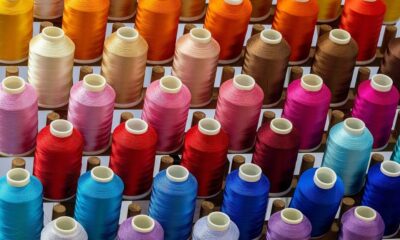Fashion
Jil Sander resumes its sneaker collaboration with Puma
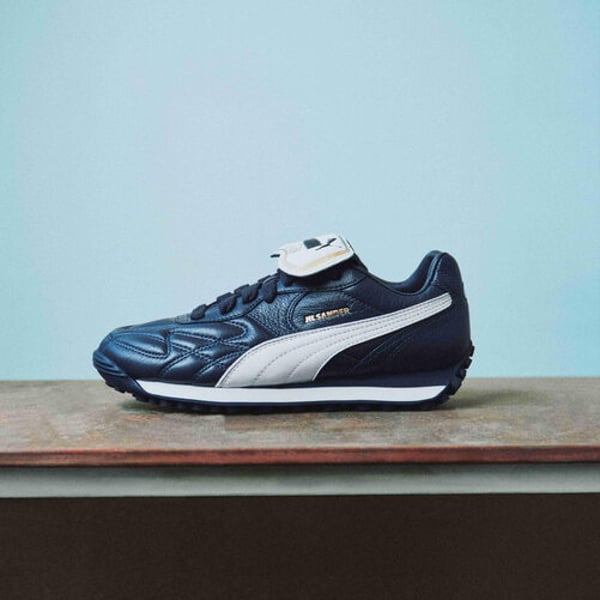
Published
October 16, 2025
In 1998, Jil Sander launched its first sneaker collaboration with Puma. Almost three decades later, creative director Simone Bellotti has revived this pioneering, still-influential project to reunite the worlds of luxury and sport.
The renewed journey begins with the revival of the legendary “King Avanti” football silhouette, celebrated for its distinctive fold-over tongue and clean lines. Bellotti regards repetition as an affirmative act, in which nothing remains the same and meaningful progress arises through continual refinement.
For the new leather sneaker, Bellotti has added a Jil Sander logo in gold foil. The fold-over tongue bears the Puma logo on the outside and the Jil Sander logo on the inside.
The unisex sneaker is available in navy as a limited edition piece and has been sold exclusively worldwide through selected Jil Sander stores and the brand’s global online shop since the start of the week. The price is €480.
According to Bellotti, this first edition is part of an ongoing collaboration. A second edition is already scheduled for March 2026.
This article is an automatic translation.
Click here to read the original article.
Copyright © 2025 FashionNetwork.com All rights reserved.
Fashion
Switzerland’s Calida narrows sales decline, lifts profit in 2025
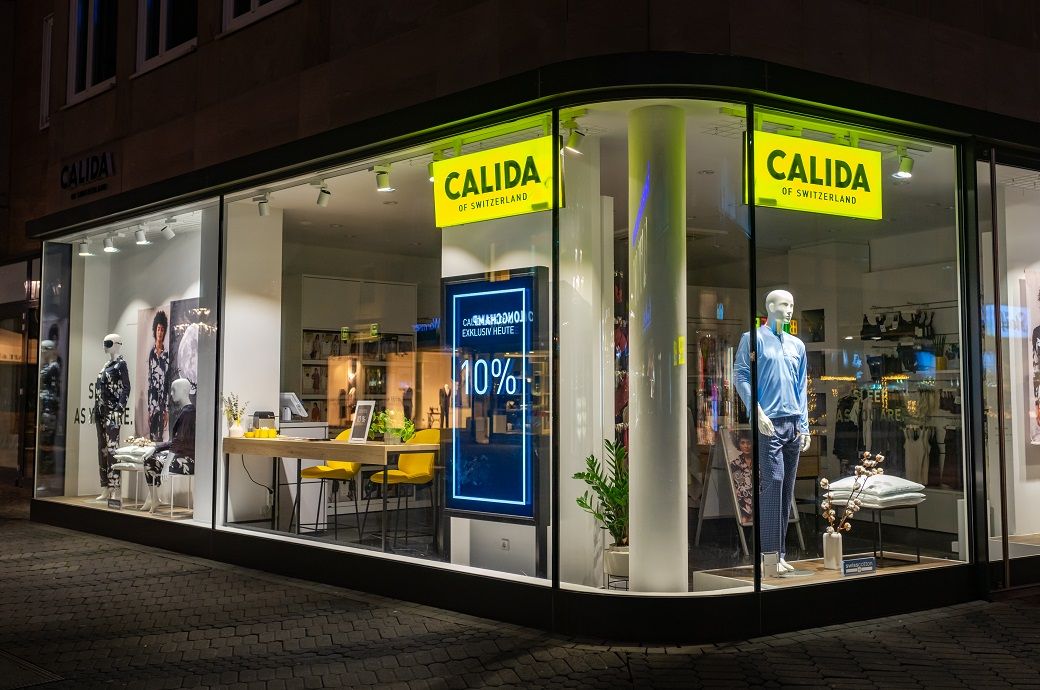
The group recorded an operating result (EBIT) of CHF 9 million (~$11.6 million) compared with CHF 4 million in the previous year, lifting the EBIT margin to 4.2 per cent from 1.7 per cent. Excluding Cosabella, the combined EBIT margin of Calida and Aubade reached 6.7 per cent, approaching the company’s medium-term target range. Operating net profit improved significantly to CHF 7.6 million (~$9.8 million) from CHF 0.5 million a year earlier, Calida Group said in a press release.
Calida Group has reported net sales of CHF 215.9 million (~$278.5 million) in 2025, down 5 per cent YoY.
EBIT rose to CHF 9 million (~$11.6 million) and net profit to CHF 7.6 million (~$9.8 million), supported by strong Calida and Aubade performance.
The group maintained solid liquidity and continued Cosabella repositioning while targeting future profitability improvement.
The group maintained a solid financial base with net liquidity of CHF 25.1 million and an adjusted equity ratio of 67.9 per cent, while free cash flow reached CHF 9.8 million. The board proposed a cash dividend of CHF 0.25 per share, corresponding to a payout ratio of 23 per cent in line with its long-term dividend policy.
“After a challenging first half of 2025, the Calida Group developed positively in the second half and achieved operational improvements on sales and profitability. By deliberately and systematically forgoing discount-driven growth and strategically positioning Calida and Aubade in the premium segment, the brands were strengthened in the long-term. Overall, 2025 was another year defined by a persistently challenging market environment,” said Thomas Stocklin, CEO of the Calida Group.
“Geopolitical uncertainty, US trade and tariff policies, and muted consumer sentiment in our core markets impacted the entire industry. In this environment, the Calida Group has demonstrated strategic discipline and, step by step, is evolving in the desired direction. Today, our group is more agile and efficient. Combined with our financial strength, this positions the Calida Group to pursue well-considered organic as well as external growth opportunities, allowing us to look to the future with confidence,” added Stocklin.
Operationally, the company continued implementing its efficiency-focused strategy by reintegrating functions into individual brands, streamlining group management structures and strengthening capabilities across product management, marketing, operations and sales.
Brand-wise, Calida generated sales of CHF 145.1 million, declining modestly as store traffic softened, although e-commerce growth and a strong Christmas season supported second-half performance. The brand improved its operating contribution margin through higher gross margins and ongoing cost optimisation while reinforcing its premium market positioning.
Aubade recorded sales of CHF 58 million amid weak consumer sentiment in France and the strategic withdrawal from unprofitable channels following the pandemic-driven demand surge. Nevertheless, margin performance strengthened through strict cost management, ongoing rebranding initiatives and progress in expanding export markets, particularly in the United States.
Cosabella reported sales of CHF 12.8 million, extending its negative growth trajectory and contributing higher losses as the brand remains in an intensive repositioning phase under strategic review. The group is targeting a turnaround towards operational break-even in 2026.
Overall, the group indicated that organisational restructuring, inventory optimisation and disciplined channel management enhanced agility and cost efficiency, positioning the company for future growth while aiming to improve group profitability further as Cosabella’s performance stabilises.
Fibre2Fashion News Desk (SG)
Fashion
Iran conflict and apparel sourcing: Nearshoring on the rise
Fashion
US’ Wolverine Worldwide 2025 revenue rises 6.8% on Active Group growth

The gross margin expanded to 47.3 per cent and diluted earnings per share more than doubled to $1.14 from $0.55.
Wolverine Worldwide has reported revenue of $1.874 billion in 2025, up 6.8 per cent, led by Active Group growth and strong Saucony performance.
Margins and earnings improved, while cash rose and debt declined.
Fourth-quarter revenue increased 4.6 per cent.
CEO Hufnagel highlighted brand momentum and transformation progress.
The company expects 2026 revenue growth with steady margins.
The company strengthened its balance sheet during the year, ending with cash of $206 million, up 35.6 per cent, and net debt reduced 16.2 per cent to $415 million. Inventory increased 10.7 per cent to $274 million, Wolverine Worldwide said in a press release.
The fourth quarter (Q4) revenue rose 4.6 per cent YoY to $517.5 million, supported by strong Active Group growth, particularly Saucony and Merrell. Active Group revenue increased 12.4 per cent to $372.7 million, while Work Group declined 11.3 per cent to $134 million. Gross margin improved to 47 per cent from 43.6 per cent, reflecting product cost savings, favourable mix and price increases, partly offset by higher US tariffs. Diluted earnings per share climbed to $0.38 from $0.28.
“We exceeded our expectations across all key metrics in the fourth quarter, finishing a solid year for the Company. Our biggest brands are growing around the world, direct-to-consumer (DTC) continues to improve, earnings per share increased meaningfully YoY, and I believe we’re finding our footing where we’ve underperformed,” said Chris Hufnagel, president and chief executive officer of Wolverine Worldwide. “I am pleased with our progress in transforming the company and encouraged by the momentum we have carried into 2026. We’re focused squarely on executing our brand-building model with pace and distinction—building awesome products, telling amazing stories, and driving the business each day.”
Looking ahead, Wolverine Worldwide expects fiscal 2026 revenue of $1.96-1.985 billion, representing growth of 4.6-5.9 per cent YoY. The company anticipates gross margin of about 46 per cent, operating margin of roughly 8.8 per cent and diluted earnings per share between $1.31 and $1.46, signalling continued but measured expansion as brand-driven strategy execution progresses, added the release.
Fibre2Fashion News Desk (SG)
-

 Politics1 week ago
Politics1 week agoWhat are Iran’s ballistic missile capabilities?
-

 Business6 days ago
Business6 days agoIndia Us Trade Deal: Fresh look at India-US trade deal? May be ‘rebalanced’ if circumstances change, says Piyush Goyal – The Times of India
-
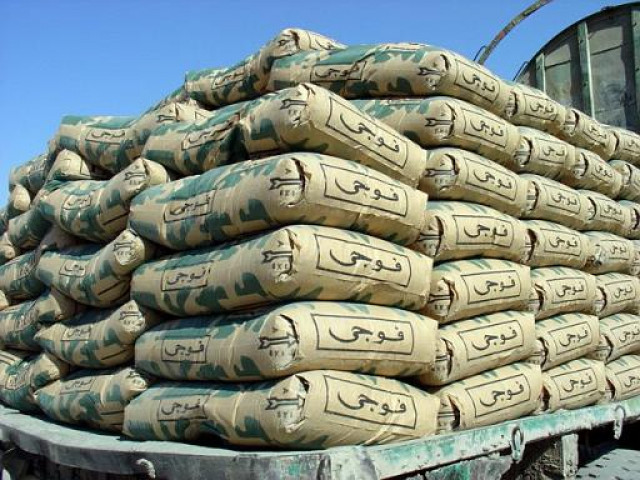
 Business7 days ago
Business7 days agoAttock Cement’s acquisition approved | The Express Tribune
-

 Politics1 week ago
Politics1 week agoUS arrests ex-Air Force pilot for ‘training’ Chinese military
-

 Business1 week ago
Business1 week agoHouseholds set for lower energy bills amid price cap shake-up
-

 Fashion7 days ago
Fashion7 days agoPolicy easing drives Argentina’s garment import surge in 2025
-

 Sports6 days ago
Sports6 days agoLPGA legend shares her feelings about US women’s Olympic wins: ‘Gets me really emotional’
-
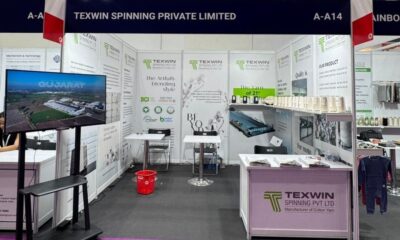
 Fashion6 days ago
Fashion6 days agoTexwin Spinning showcasing premium cotton yarn range at VIATT 2026






